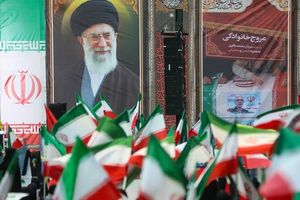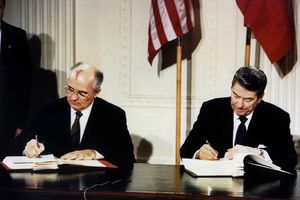Tehran has framed the August 20 visit as part of a concerted move against Western pressure.
Iran newspaper, the administration’s mouthpiece, wrote that the president’s decision to visit Minsk was a logical continuation of Tehran’s foreign policy—a policy emphasizing a multipolar world, national sovereignty, independence, and resistance to coercion.”
Similarly, Nour News, close to Ali Khamenei's top advisor Ali Shamkhani, described the trip as a “clear message against global unilateralism and sanctions.”
Consolidating the 'Look East' strategy
For many observers, the choice of Belarus as one of Pezeshkian’s first foreign destinations after the 12-day war with Israel was a deliberate statement of intent.
Esfandiar Khodaee, a foreign relations commentator, wrote in Khabar Online that the visit showed the “Looking East” policy was no longer just a legacy of Mahmoud Ahmadinejad or Ebrahim Raisi, but “a standing pillar of the Islamic Republic’s foreign policy.”
The approach traces back to Ahmadinejad’s presidency, when Tehran expanded ties with China, Russia, India, and members of the Shanghai Cooperation Organization. Supreme Leader Ali Khamenei reaffirmed the policy in 2018 with the slogan “Looking East,” emphasizing reliance on non-Western partners as sanctions mounted.
Analysts note that Europe’s hardened stance on Iran’s nuclear file—coupled with escalating US sanctions—has pushed Tehran further into Russia’s orbit.
As a commentary published by Moj News Agency put it, “Tehran’s choice of Belarus at this moment highlights its prioritization of ties with anti-Western, pro-Russian states—especially as Europe in recent months has shown no flexibility in its dealings with Iran.”
"Those who say we shouldn’t work with China and Russia — do they mean we should stand alone?" Ali Larijani, the secretary of Iran's Supreme National Security Council said in an interview with Khamenei's website published on Friday.
"Well, when the Westerners don’t work with us, we work with China, we work with other countries," he added.
A message of resilience
Belarus, like Iran, is heavily sanctioned and has faced sharp international isolation since aligning with Moscow over the war in Ukraine. Both states thus share an interest in showcasing resilience against sanctions.
Alireza Salimi, a member of parliament’s presiding board, told ISNA that the president’s visits to Armenia and Belarus sent a message that Iran is “sanctions-proof”.
The rhetoric was reinforced by the agreements signed in Minsk. Foreign Minister Abbas Araghchi announced that Tehran and Minsk were upgrading their Comprehensive Cooperation Roadmap for 2023–2026 into a strategic partnership agreement.
The two sides also discussed closer alignment within the Eurasian Economic Union, BRICS, and the Shanghai Cooperation Organization.
Military and security undertones
Though economic cooperation was highlighted, the military dimension loomed large. Tehran and Minsk have quietly expanded security ties in recent years: an August 2023 defense memorandum paved the way for Belarusian forces to join Iranian drills in 2024, and Iran opened its first military attaché office in Minsk in 2025.
Belarusian officials have recently discussed ramping up missile production, including exploring nuclear-capable options for their Polonez rocket systems. Iran’s expertise in missile development makes it a potential partner and could raise concerns in Western capitals.
Both governments also maintain open support for Moscow’s war effort, a stance that has drawn sharp condemnation from Ukraine and NATO states. Kyiv in particular has repeatedly denounced Tehran’s supply of drones to Russia.
Trade remains modest but symbolic
Despite official optimism, trade between the two countries remains limited. Araghchi said bilateral exchanges totaled $140 million in the first half of 2025—a 14 percent increase from last year, but quite modest.
Even if current volumes are low, both sides see such arrangements as politically symbolic and vital to their shared sanctions-circumvention strategies.
Both governments also see potential in expanding connectivity. Reza Masroor, head of Iran’s Supreme Council of Free and Special Economic Zones, noted that Belarus could gain access to open waters via Iran’s free zones through the Makhachkala–Caspian Port route.
This, he argued, would allow Minsk to bypass Baltic restrictions and connect to the North–South Corridor, enabling exports of potash, agricultural goods, and industrial products to markets in the Middle East, Africa, and beyond.















